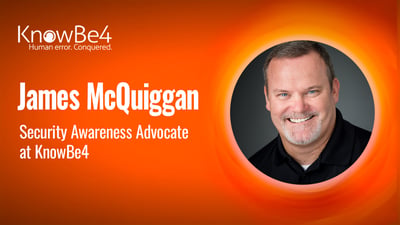 For most folks, social media has become integral to their daily lives in today's hyperconnected world. They use platforms like Facebook, Twitter and Instagram to share their thoughts, experiences and personal moments with friends and family.
For most folks, social media has become integral to their daily lives in today's hyperconnected world. They use platforms like Facebook, Twitter and Instagram to share their thoughts, experiences and personal moments with friends and family.
Being online has even become a business for content creators, who share their insights and thoughts of their daily lives, from “Getting Ready With Me” (GRWM) to recording video trends of jumping over your camera to the beach or the latest dance craze.
However, it is crucial to be aware of the potential dangers of oversharing personal information online, as cybercriminals can exploit this information to stalk individuals where they live or work.
The Rise of Cyberstalking
Cyberstalking is another unfortunate reality in today's digital landscape. With the vast amount of online personal information, cybercriminals can quickly gather data about their victims, enabling them to harass, intimidate or even harm individuals. Social media platforms provide a treasure trove of information, including your location, personal relationships, interests, and daily routines. If accessed by malicious actors, this information can be used to invade one's privacy and potentially compromise their safety.
The Dangers of Oversharing
While bringing countless benefits, this digital age also introduces significant risks, such as identity theft. As Rachel Tobac demonstrated at this year's KB4-CON, she determined and verified her target Perry Carpenter's personal cell phone and email address.
Utilizing several online data brokerage websites and leveraging various websites' password reset functionalities, starting with the password reset process to get part of his email address and the last four digits of his phone number. Doing this across different sites provided different parts of his email and phone number; she verified his cellphone number and email address within minutes.
Cybercriminals can craft a convincing false identity by collecting seemingly innocuous personal information, such as your full name, date of birth and address. With these details, they can open credit accounts, apply for loans and conduct fraudulent activities under your name. The implications are profound, affecting not just your financial health but potentially causing long-lasting damage to your reputation.
Another critical risk posed by sharing too much information online is the possibility of physical threats. As recently covered in a Tampa Bay story, a young woman played a popular online game and chatted with the various players. One in particular took an interest and conversed with her online. Eventually, he convinced her to give him her name, email and phone number. With this information, he was able to track her down, her home address and begin texting, which led to asking for inappropriate pictures of her to send him.
This led to his sending packages to her home to use in those images. The final act was him visiting the house in an attempt to sexually assault the young teenager. Thankfully, she was able to escape to her neighbors, where she called 911. The attacker was arrested and charges pressed. These events could all have been avoided by educating our children not to share personal information online, as this is a scary and potential outcome.
Cyberstalkers exploit such data to track your movements, enabling them to plan malicious activities with chilling precision. This vulnerability underscores the importance of being cautious about the personal details we disclose on social media platforms and other public forums.
Social engineering attacks represent yet another peril in this landscape. As seen with this attack, cybercriminals will leverage the information you share online to impersonate you or someone you trust. Once they have gained your trust, they can manipulate you into divulging sensitive information, such as personal information or passwords.
These pieces of information are goldmines for cybercriminals, who can use them to gain unauthorized access to your accounts. Understanding the mechanics of social engineering and being vigilant about the information you share are crucial steps in protecting yourself from these insidious threats.
Protecting Your Digital Footprint
In today's interconnected world, safeguarding your digital footprint is not just advisable — it's imperative. Fortunately, you can take several proactive measures to protect yourself online. One crucial step is to become well versed in the privacy settings of the various social media platforms. Configuring these settings limits the visibility of personal information, ensuring that only trusted friends and connections have access.
Content creators should be aware of what is shared online and keep similar locations for filming. At the same time, the audience may know what state they live in, so avoid giving specific location information to reduce the risk of being located.
Additionally, consider being selective about who you add to social networks. Only accept friend or connection requests from known and trusted individuals. Exercise caution when dealing with unknown or suspicious profiles as these could be fronts for cybercriminals aiming to access your data or infiltrate your network for malicious purposes.
Another important preventive measure is to think carefully before sharing any personal information. Always consider the potential consequences of your posts. Ask whether the data could be misused or if it could potentially put one's safety at risk. This mindfulness can prevent many unintended vulnerabilities.
It's also wise to minimize sharing your location, especially in real-time. If you wish to share experiences at specific places, like a vacation, consider doing so after you've left the location. Alternatively, mention a general area without giving away your exact address. This helps maintain your privacy while still allowing you to share parts of your life with your network.
It's a solid recommendation to consider using a service to delete personal information from data brokerages and limit your exposure to data about you online unless it's for business.
Lastly, make it a routine to review and update your privacy settings on all social media platforms regularly. Privacy policies and settings can change and new features can affect your privacy unexpectedly. Keeping your settings updated is critical in ensuring your personal information is shielded from prying eyes. By taking these steps, you can better manage your online presence and protect yourself from cyber threats.
Conclusion
In an era where personal information is easily accessible online, it's crucial to be mindful of the dangers associated with oversharing. Cybercriminals can exploit this information to stalk individuals, leading to potential harm or privacy invasion.
Understanding the risks and taking proactive measures to protect your digital footprint can minimize the chances of falling victim to cyberstalking. Remember, your online safety is in your hands. Stay vigilant and think twice before sharing personal information online.
 Here's how the Social Media Phishing Test works:
Here's how the Social Media Phishing Test works:




